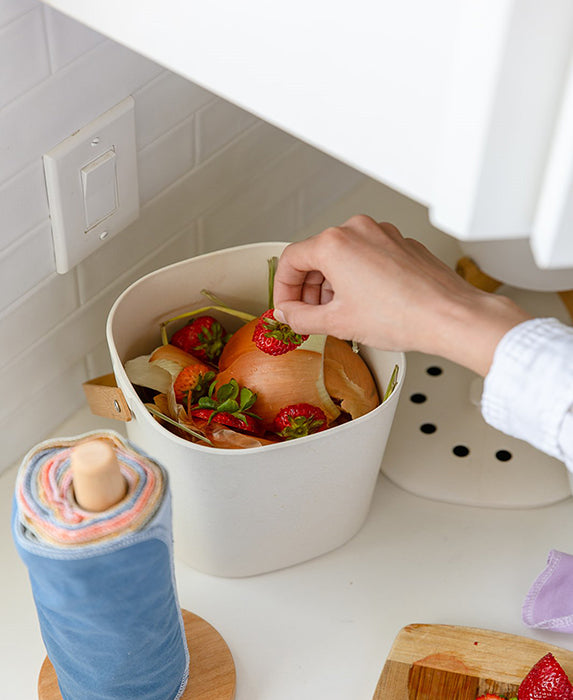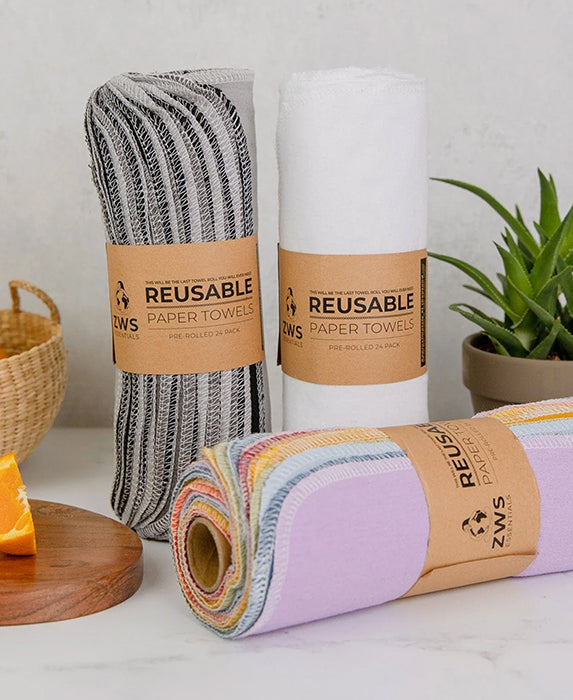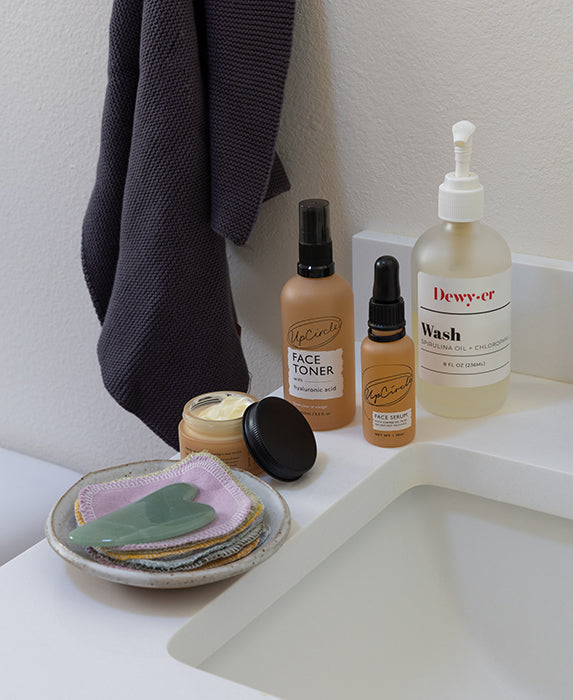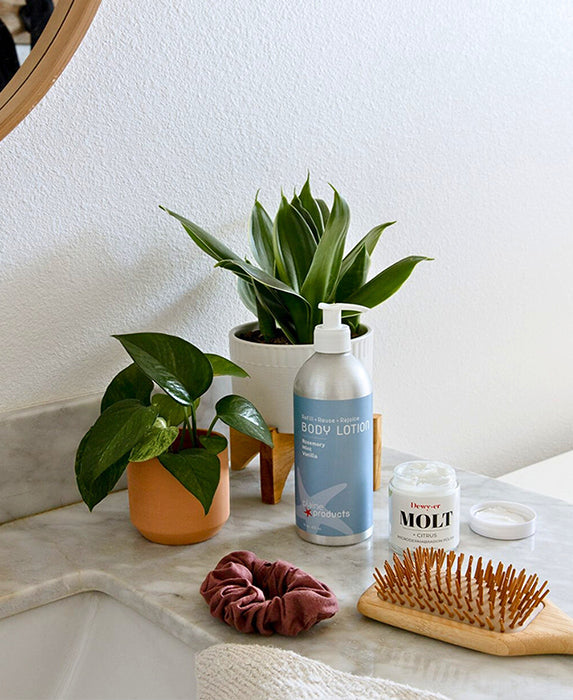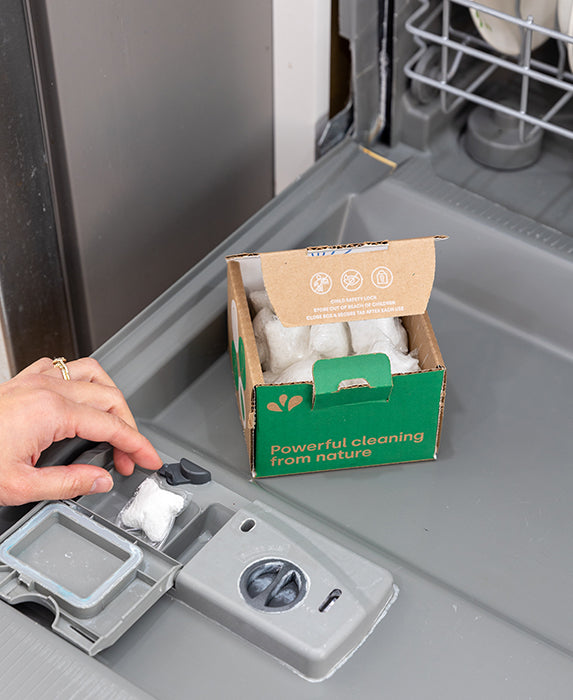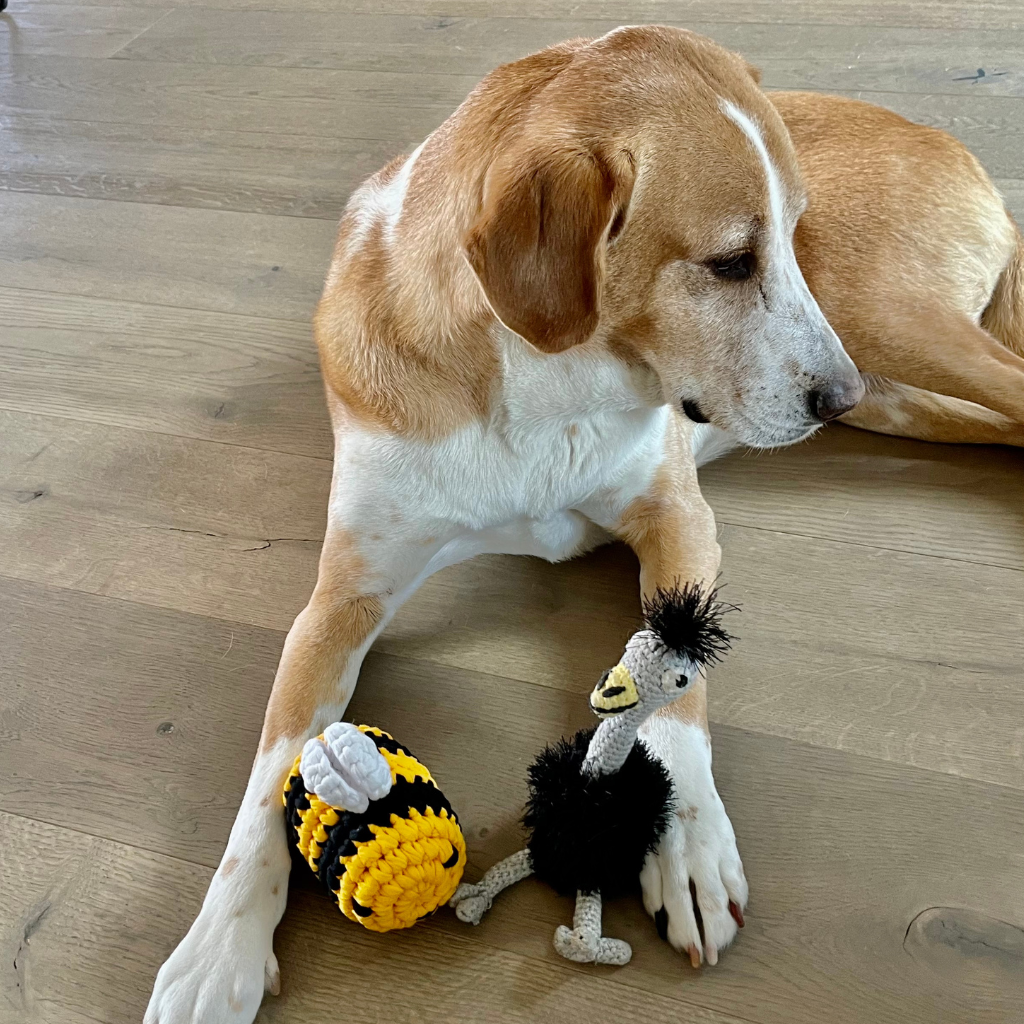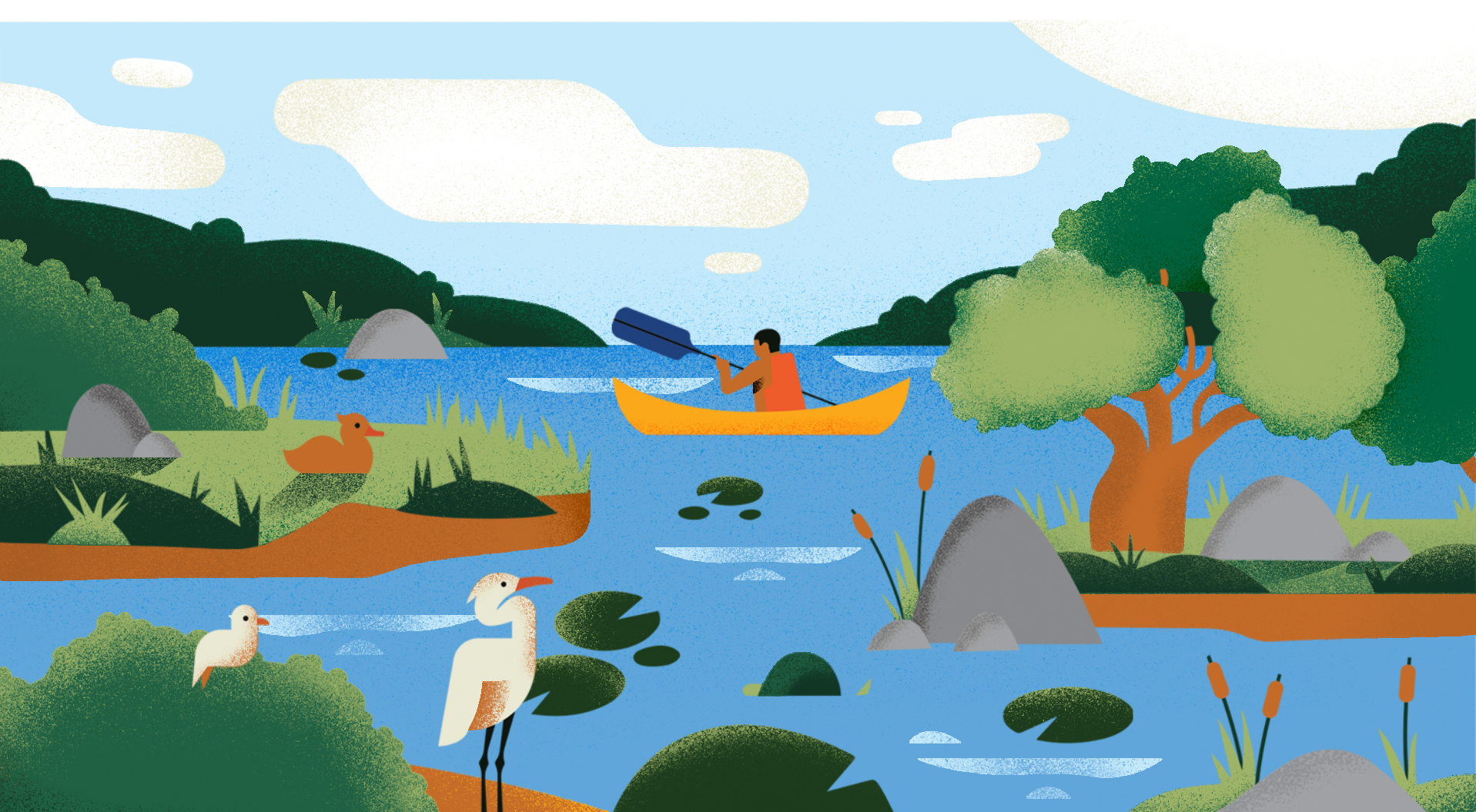Hi, EarthHeroes!
I’m Daley, one of the humans behind EarthHero’s marketing team. Today I wanted to talk about a question I get asked all the time by my friends and family:
“I want to live more sustainably, but what changes will actually make a difference?” or “I don’t know where to start.”
I usually tell them that just by having the intention and desire to make a change, they’ve already started. But what’s the next step, you ask? Below I’ve listed a few suggestions and tips that have helped me in my sustainability journey.
You’ve all heard “Reduce, Reuse, Recycle” but I’m taking it a bit further by adding a few other Rs to the list. Let’s get started!
Reduce
Overconsumption is a huge issue and leads to so much waste. I used to be guilty of making frequent impulse buys, I’d order things online because they were in style or just because I wanted them at that moment. Now, I like to ask myself a series of questions before making any purchase:
1. Do I want it (the answer is usually yes)
2. Do I need it? (The answer is usually no)
3. Can I borrow it, make it myself, or buy it secondhand?
4. And then the final doozy: What is the impact this purchase will have on the planet (i.e., what happens to it when I'm done with it? Who made it and what is it made out of?).
If I feel good about all the answers, then I go ahead and make the purchase. Otherwise, I try to find alternatives like buying secondhand or finding a more sustainable version. And hey, sometimes I just want something, and that’s okay too. I just try to be mindful of what I’m buying, why I’m buying it, and how often these impulses come up.
Reuse
This one is huge. When you start looking at things in your life as multi-purposed, you’ll create much less waste and save money! With this reuse mindset, you’ll start seeing old socks as cleaning rags, old spray bottles as refillable bottles, old salsa jars as storage, and so on. Other ways to reuse objects or materials are to buy secondhand or to buy things that are made from recycled materials – all that cardboard, plastic, and paper you put on your curbside to be recycled gets turned into other products, that's the beauty of a circular economy. More on that below.
Recycle
While recycling alone won’t solve the environmental crisis, it certainly helps. Every recycling facility has different capabilities, but a few “rules” are true regardless of your location. Things I like to keep in mind when recycling are: make sure whatever you’re recycling is clean. Dirty or wet items tossed into your recycling bin can contaminate the entire batch and require it to be sent to the landfill. The same rule applies to non-recyclable items. When things like plastic bags get mixed in with your recyclables, they can get caught up in the machine and cause BIG issues. It’s important to recycle, but it's even more important to recycle correctly. Research your local recycling facility and make sure you’re following their guidelines.
Reflect
Okay, this one is kinda fun. When I made the decision to try my best to live more sustainably, one of the first steps I took was to look through my trash. Creating less trash is the ultimate goal to work toward. and in order to do that it’s important to see what it is you’re throwing away most often. So yep, I dug around my trash like a raccoon and I learned a lot. I found I was throwing out a lot of food waste (stinky!), and plastic bottles of products like shampoo, hand soap, spray bottles, etc. Luckily, both of these are easy to combat and required little effort on my end.
For the food scraps, I began composting (see below!) and now my trash can is WAY less stinky and it fills up much slower. As for the plastic bottles, I began looking for replacements for each of the products I saw in my trash. There are zero-waste alternatives to just about any plastic bottle you see in your home like dishwasher detergent, body wash, toothpaste, even dry shampoo!
Tip: in most cases, finishing what you already have at home is the most sustainable thing you can do. Once you're running low, try looking for lower-impact options!
Rot
Rot rot rot! Composting does two really important things: it keeps food waste from going to the landfill where it produces methane, a SUPER potent greenhouse gas that traps heat in the atmosphere (no bueno!) Composting also puts the nutrients from the food back into the soil which helps grow more food – there's that circular theme once again.
Composting can be easier for some compared to others. Some cities have curbside composting that you can take out alongside your trash and recycling (amazing!) while other cities have no composting infrastructure set up at all. Similarly, some folks may have the ability to compost right in their backyard, and that may not be available to others, especially city-dwellers. My suggestion would be to research your options – you may find a local farm that would LOVE your food scraps or a compost drop-off a few blocks away. You can learn a lot from a simple online search!
Research
This suggestion may feel a bit daunting or boring (depending on what you’re into) but it’s so important – knowledge is power! Research can be done from a high level, like reading about climate change or pollution. Or it can be done on a much smaller scale, like researching the chemicals in your shampoo or laundry detergent. All types of research can help you live more sustainably.
To make research more digestible, I’d suggest subscribing to a newsletter or blog of a company, brand, or organization you trust.
Riot!
Okay so rioting isn’t the answer, but it goes along with my R theme. The better words for it would be “protesting” or becoming an “activist”. Using your voice is one of the most impactful ways to help protect our planet. Join local groups, vote when you can, and let your representatives know your opinion on local issues. Here’s a blog about becoming an environmental activist.
I hope these tips and suggestions are helpful for anyone trying to take the next step on their sustainability journey. Every little bit does make a difference.

